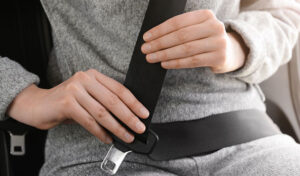
Advanced Technology and Law Firms
Technology is continuously advancing and moving forward, and this helps us progress in all aspects. As AI continues to improve, companies can learn how to use it to their advantage.

Technology is continuously advancing and moving forward, and this helps us progress in all aspects. As AI continues to improve, companies can learn how to use it to their advantage.

Cars Before Safety Features In 1885, Karl Benz invented the first automobile. The car had three wheels, resembled a horse-drawn carriage, and was powered by an internal combustion engine. The

Buying a new car can be a stressful experience, for both experienced and first time buyers. Not only can it be a big expense, but it is a commitment as

Photo Credit: UtahCity.com Deep in the heart of Vineyard, there has been a large open dirt field. What used to be the U.S. Steel Geneva Works is now being converted

After you have been in an accident or been injured, you will want to set up an appointment with an attorney. If you have not been to a consultation with

After being in an auto accident, there are a lot of questions you need answered or help to move forward. Once you have made sure that you and your family

Truck driver fatigue is a leading cause of commercial motor vehicle accidents, yet it is not discussed as much as it should be. Truck drivers work during a variety of
Commercial vehicles such as buses and large trucks are regulated by the federal government to ensure the safety of those who travel in them and those who share the road
UTAH INJURY LAWYERS
Flickinger • Boulton
• Robson • Weeks
PROVO OFFICE
3000 N University Ave
Suite 300
Provo, UT 84604
SOUTH JORDAN OFFICE
10393 S. Temple Dr.
Suite 103
South Jordan, Utah 84095
OFFICE HOURS
Monday- Friday: 8AM-5PM
Saturday-Sunday: Closed
*Disclaimer: the information provided by this website is for informational purposes only and should not be considered legal advice or a substitute for competent legal counsel.
**SMS consent and contact phone numbers will not be shared or sold to third parties or their affiliates for any purpose.
© 2025 All Rights Reserved.